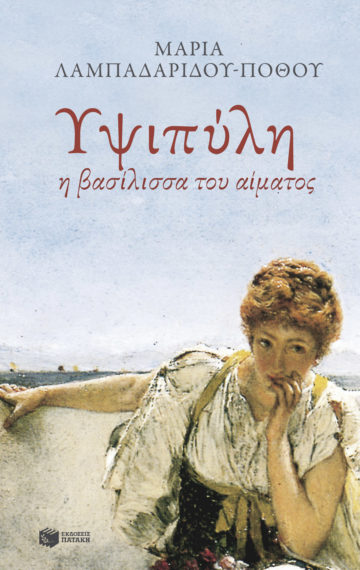
- Publisher: Patakis Publications
- Available in: Paperback
- ISBN: 9789601636184
Hypsipyle was queen of Lemnos in a mythical time, a tragic queen whose life was linked to one of the most shocking events of matriarchal times: The Lemnian women, in a fit of madness, killed the entire male population of the island as revenge against their husbands who did not want them anymore, because Venus had cursed them with a disgusting smell. Hypsipyle opposed the act of madness and rescued her father, King Thoa. She placed him in a basket covered with wax and threw it into the sea. When the women realized what they had done, they were devastated with grief. The laws of nature had been perverted and the dead were wandering among them with lit lamps. Until the day of purification. When "Argo" arrived in Lemnos, the women became involved with the Argonauts. And a great love was born between Hypsipyle and Jason. It's a peculiar novel shaped by the most primordial elements of the soul: The passion that led to mass murder and the love-symbol of eternal beauty, which Orpheus himself sang for.
The novel Hypsipyle, the queen of blood, brings to life a legend thirty-three centuries old and is given through a series of rituals. Blood, mourning, grief, purification, and finally love which are the five cycles of the soul until it reaches the light. A novel framed by the most primitive elements of the soul: The passion of Lemnian women, which will lead to mass murder. Mourning, afterward. The agony. The purge. Finally, love, as a symbol of eternal beauty. I dared to bring to life this ruthless myth because I believe that those primal people, with their primitive worship and the relentless need for blood, could be present.
Excerpt
(In english)
From the ritual of love
“The thirst burns me and I am lost…”
I stand at the very edge of time and look. I walk carefully between the thirty-three centuries of my myth and the autumnal present day that has brought me here, to this deserted beach with footprints of seagulls on the damp sand.
The music reaches to this point. It captivates me and I search for its source. A divine melody. And then a voice that sunders even the stones. Never, it was said, never has a song like that been heard since then.
Εργασία για την Υψιπύλη της καθηγήτριας του ΑΠΘ Μαρίας Λιτσαρδάκη
Υψιπύλη, κριτική στο Διάστιχο, αυθεντικό
Υψιπύλη, κριτική στο Διάστιχο “Ένα έργο με δομή τραγωδίας”
Υψιπύλη, μικρη παρουσίαση στο Έθνος, αυθεντικό